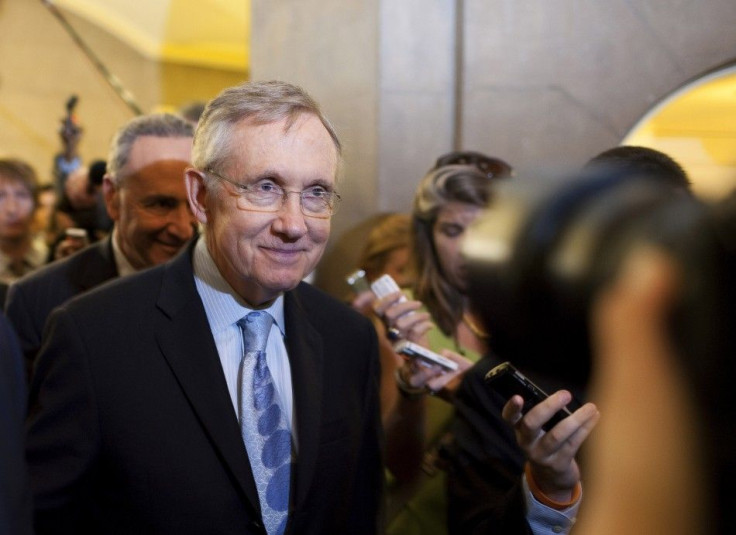Congress Agrees to End FAA Shutdown

Lawmakers agreed to fund the Federal Aviation Administration and end the 13-day shutdown, Senate Majority Leader Harry Reid announced on Thursday.
The bipartisan agreement will allow for the Senate to approve a House bill that will renew the FAA's contract that expired on July 22nd. The deal will extend the FAA's operating authority through mid-September, another short-term extension since its last multi-year agreement ran out in 2007.
"I am pleased to announce that we have been able to broker a bipartisan compromise between the House and the Senate to put 74,000 transportation and construction workers back to work," Reid, a Nevada Democrat, said in an e-mailed statement.
"This is a tremendous victory for American workers everywhere," Transportation Secretary Ray LaHood said in a statement.
Republicans insisted that the agreement include a provision that cuts $16.5 million in subsidies to rural communities, though Democrats had initially resisted. It is believed though, through a provision in the bill that LaHood will issue a waiver to allow some of the rural subsidies to continue.
"This agreement does not resolve the important differences that still remain," Reid said. "But I believe we should keep Americans working while Congress settles its differences, and this agreement will do exactly that."
The return of the FAA could actually have a negative financial impact on major airline companies, such as United Continental and Southwest Airlines. Both major companies, along with other airlines, pocketed taxes that would have gone to the FAA. Those airlines had kept prices the same, which reflected taxes, while continuing to reap in the profit.
Some airlines, such as U.S. Airways and Delta, have offered to give customers refunds on the taxes, though Southwest and United Continental have both remained silent.
The FAA was losing an estimated $30 million a day while it waited in limbo for Congress to make a decision.
"We're losing $200 million a week in ticket tax revenue," Rep. Jim Moran, D-Va., said on ABC's "TopLine" on Thursday. "The passengers are paying it. The [airlines] are pocketing it. We need that money."
© Copyright IBTimes 2025. All rights reserved.





















